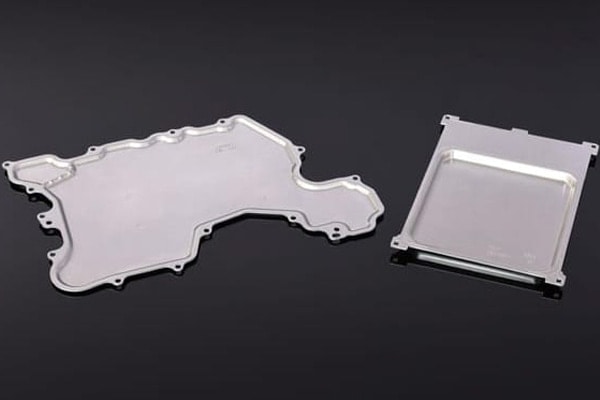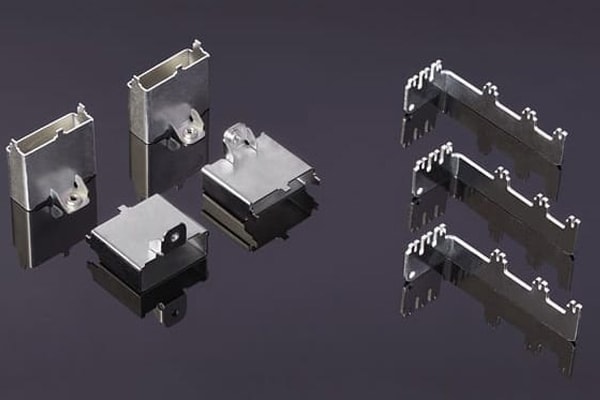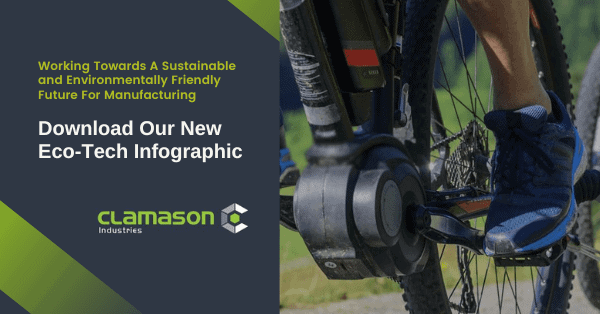While the majority of automakers have flirted with the idea of electric vehicles, an incoming ban on the sale of new petrol and diesel cars in the UK has forced many to redouble efforts and plan for a 2030 switchover.
A moral but seismic shift, it’s one that’s left many OEMs relying on the ingenuity and capability of leading manufacturers such as Clamason Industries.
Be in no doubt, these companies are fundamental to the wider adoption of hybrid and electric vehicles.
Electrification
The move towards EVs was in many ways inevitable.
Not before time, the world has recognised the damage caused by pollution and diminishing resources.
Rightly or wrongly combustion engines are seen as some of the worst offenders and are therefore being discarded in a bid to forge a cleaner and greener future.
In their stead come a combination of fully electric, hybrid and hydrogen powered vehicles, bringing with them a host of benefits.
To begin with, the driving experience itself is smoother.
EVs are also easier to operate and generally low maintenance, certainly in comparison to the greatest gas guzzlers.
Elsewhere pollutants of the emission and noise variety are reduced, along with overall energy consumption.
While traditionalists still bemoan their introduction, there is no denying the positives nor potential of electric cars.
Yet ramping up production hinges not just on the likes of BMW and Mercedes-Benz but their suppliers too.
Capabilities

Manufacturers will smooth the transition to EVs across the world. They’ll do so by providing their own hybrid of quality and value.
There is no escaping the fact some of the biggest automakers have been forced to slash billions from cost bases in preparation for the lower profitability of electric cars. COVID-19 has only compounded financial woes.
Understandably then, many are on the lookout for reliable but cost-effective solutions, knowing margins could be lower, at least in the short-term.
Partnering with the likes of Clamason enables them to strike that balance. This is because we provide value for clients at the production design phase.
Using precision tooling, we can produce pressings consistently over long production runs. Moreover, our pressed parts can be small and intricate enough to compliment EV’s, where less is often more.
Automakers have come to rely on the likes of Clamason for materials and post stamping processes and trust us to introduce innovative techniques where appropriate. These may include aluminium die casting to stamping, for example.
More generally, they have benefited from automated assembly systems, with machinery that combines smaller parts with tighter tolerances.
As for the components themselves, these are many and varied, despite moving parts (approximately 20) in an e-motor numbering considerably fewer than those seen in a combustion engine (approximately 200).
They could include bodywork, which tends to be pressed from lightweight aluminium.
You may also find seat frames and significant portions of steering wheels made from magnesium, a similarly lightweight metal.
Clamason
Clamason’s own commitment to electrification was demonstrated in the launch of our Eco-Tech sector in August 2020.
Since that time, we’ve expanded operations across our UK and Slovakian plants to encompass not just automotive, medical and industrial component projects but those aimed at sustainability.
This has seen us deliver exceptional parts for the E-mobility, Energy, Power and Distribution and of course Electrification and Hybrid sectors.
Those automakers that partner with us do so knowing they will benefit not just from superior electronic components, but superior electronic components packaged correctly, so as to avoid damage in transit.

Our in-house experience, coupled with investment in state-of-the-art technology, has seen us develop, in conjunction with our customers, a series of pressed components seen in a growing number of electric vehicles across Europe.
Among them are aluminium covers for inverters. For anyone unfamiliar, inverters convert a battery’s direct current (DC) into an alternating current (AC). This is duly harnessed to control the motor speed itself.
Clamason’s aluminium inverter covers are incredibly flat and typically sized between 0.5mm and 2mm thick.
Manufactured using a 300t press, they adhere to strict tolerances while the addition of coining reduces the cutting burr required within certain sections.
In the production of aluminium covers stamping is only the start of the process. Clamason have developed a trademark technical cleaning process called ATC100. This process has been created to give customers a part cleanliness with a maximum particle size of 100 micron, along with a surface tension of more than 56Mn/M.
The idea behind achieving the above standards is to give customers maximum protection from a potential short circuit from a metallic particle and optimum adhesion conditions, this through controlling the surface tension.
We’ve enjoyed similar success in the manufacture of busbars for inverters. Unlike aluminium covers, these are pressed from copper and include a tin coating. A major concern within the manufacture and coating of busbars can be the effect of tin whiskers appearing, this is something where Clamason can help with a solution.
We dedicate great time to tooling to ensure repeatability and with it, quicker turnaround times.
Other examples of eco-tech products include shields for inverters. These are derived from tin coated steel or stainless-steel and structural components which fix the motor and pedal assembly together on e-bikes, made from aluminium.
The automotive landscape is changing. While Clamason continue to excel in the manufacture of cockpit structures, infotainment and reception systems, we are also charting a course into the electric era.
Ours is a crucial role in the tectonic shift underway within the motoring industry at large.
More complex vehicles demand more complex parts. The ability to call on trusted partners able to deliver just that, is invaluable for those compelled to electrify their offering.

